Seats
UNLIMITEDThree Screaming Vaginas
Alexia Roc, Canada
15′
Three Screaming Vaginas is a triptych short film which interweaves three respective intimate stories. It immerses us in the daily lives of three women, revealing to us the challenges and splendors of the vaginal experience, with humor and sincerity.
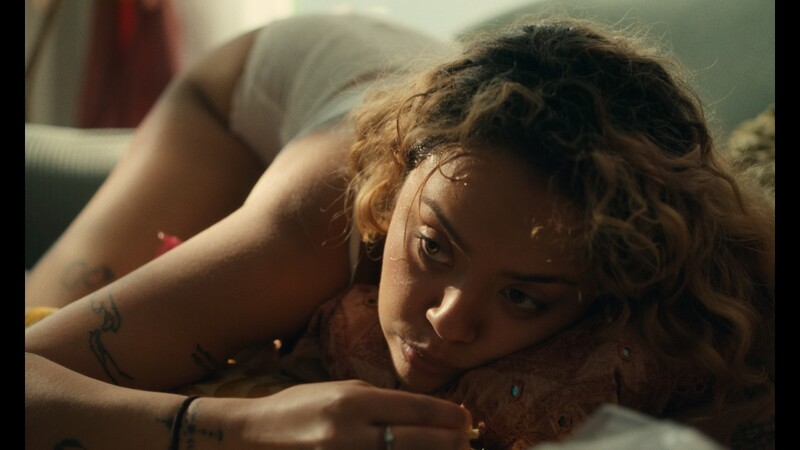
Director Biography – Alexia Roc
Alexia Roc is a 27-year-old Quebec-Haitian screenwriter, director and artistic director based in Montreal. She particularly likes writing unique and real characters to illustrate different realities that we don’t often see on screen. Her feminist activism and her Métis origins push her to speak out on subjects that are extremely dear and close to her. With a master’s degree in film production at Concordia University, she is interested in different forms of feminist cinematic experiments as therapeutic means to redefine and understand experiences of abuse and trauma.
She produced and directed her social web series “Entre Parenthesis” which has been distributed by MAtv since 2021, featuring duos discussing sensitive contemporary subjects and opening dialogue on many social issues. Herlatest short film Bergen, Norway won the Tourner à tout Prix grand prize at the Festival Regard in 2023 and is showing it in several other festivals such as Fantasia, the Festival Émergence de Montréal, Pleins screens and Mutoscope de Lyon. Alexia is currently in pre-production of her next short film “Aux Garcons de Mon Age”, which is supported in production by SODEC.
Director Statement
In the case of “Three Screaming Vaginas”, it is essential for me to feature three different female characters, without excuse, who act with their bodies. What unites them is the desire to accept their body as it is (they have no choice), although this is not always easy. Their physical and physiological pain, a reality shared by for many people with vaginas, is a catalyst for their action, not a feeling of victimization.
The formal tactics that appealed to me for this triptych film are in line with my research over the last few years during my master’s degree: the use of humor and irony, the desire to pursue the highlighting of a hybrid cinema – a less conventional cinema of fiction, with elements specific to the experimental style (since I am using here the technique of a choral scenario which reflects three distinct but related stories, running parallel to each other). Finally, my desire to go against the “male gaze”, where the woman’s body is highlighted while she has full control over it.
These three related stories allow me to elaborate in an almost episodic manner, in number, the difficulty of having a vagina. Without censorship, with the greatest sensitivity and authenticity possible, the triptych technique subdivides the evolution of the life of a vagina into three distinct chapters.
Mitayero
Kate Vinen, Australia
6′
This film was made in the Amazon Jungle, Peru, during PlayLab Films’ Director’s Lab with Apichatpong Weerasethakul.
Synopsis: In the liminal space between the jungle and the wide river that runs through it, steeped in myths of anacondas, piranhas and jaguars, a man has lived alone in a secluded hut for twenty years. A hunter’s voice from the past shares a dream with his wife in which wild animals seek revenge on him, placing into question how everyday life will be lived in their future. While the couple’s human drama unfolds, nature remains unphased, time and the river moving forward – or is it backwards?
Spain, Australia | 2023
Languages :: Peruvian Spanish and Ese Eja (indigenous language) with English subtitles
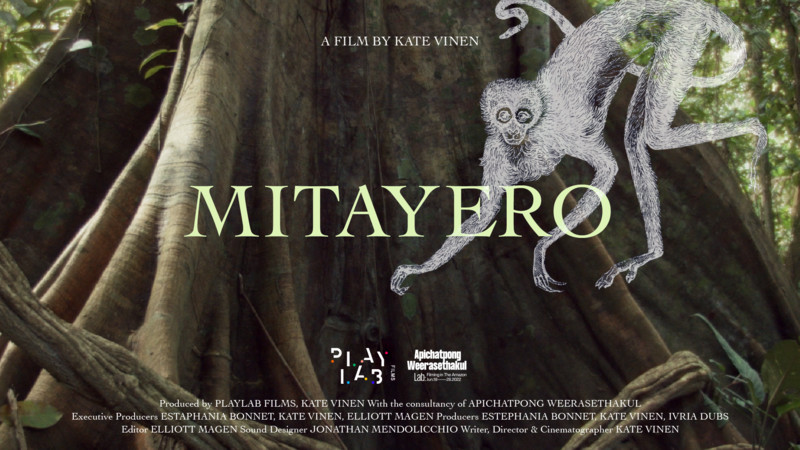

Director Biography – Kate Vinen
Kate Vinen is an award-winning writer and director based in Sydney, Australia. Kate completed a Graduate Certificate in Directing (2010) and a Masters of Documentary Directing (2018-2020) at the Australian Film Television and Radio School (AFTRS). Kate’s short film ‘Acts for the Invisible’ (writer/director/producer) had its World Premiere at Sydney Film Festival in 2021 and has since had a successful national and international run, winning the 2022 CILECT CAPA Best Film: Documentary. Her recent film, ‘Mitayero’ was made at the prestigious PlayLab Films Director’s Lab mentored by Palme d’Or winning director Apichatpong Weerasethakul in the Amazon Jungle. Projects Kate has written, directed and produced have screened in Australia and worldwide including Sydney Film Festival (Australia), Short Shorts Film Festival & Asia (Japan), DocEdge (NZ), Dhaka Art Summit (Bangladesh), Les Rencontres International (France), Asia Pacific Triennial 8 (Australia), Tampere Film Festival (Finland) and Salento International Film Festival (Italy).
Director Statement
I filmed ‘Mitayero’ at PlayLab Films’ Director’s Lab with Apichatpong Weerasethakul in the Peruvian Amazon, as one of the 50 directors selected to participate from 25 countries. I was thrilled to have the opportunity to receive close mentorship from Apichatpong, an auteur I have long respected. It was my first time working as a solo practitioner and my intention was to experiment conceptually and technically to expand my vision and craft. I set out to make presence more palpable in my work, play with the concept of time and incorporate my subconscious creative instincts and impulses. The experience was an adventurous, deep dive into the creative process and a reminder that, ultimately, film is an artifact and its form the result of the process.
Apichatpong’s theme for the lab was ‘a conversation,’ and each morning he led a 6am meditation in the middle of a waking jungle. As the days passed we became immersed in the jungle’s wild nature and Apitchatpong’s theme. Time felt elastic—the 12 days felt like moments and years simultaneously. Intimate conversation emerged—between the participants, Apichatpong and ourselves, the forest and us, between everything within the forest. The interconnectedness of all things revealed itself to us, and at times the lab felt like a spiritual retreat or a hallucinogenic experience. Apichatpong encouraged us to make more than just ‘beautiful images’. I wanted to reflect elements of my experience by drawing attention to the multiple layers of reality that exist. By slowing the film’s pace and utilising long shots, I seek to immerse the viewer and activate their sense of perception, as if to ask “What do you see here? … And beyond that image?”.
The conversation I initially wanted to explore in the making of ‘Mitayero’ is the strained relationship between nature and humankind. I am a deep lover of wild nature and believe nature has a consciousness. I am motivated by the ongoing question of how humans can live in balance with the natural world, especially at this moment in history, when extinction rates are speeding up exponentially and wilderness is rapidly disappearing. There is immense grief in the destruction of nature, and I am not afraid of that grief. I feel it’s important to connect to it if we want to face the truth about what’s happening to the environment and use it as a driving force to bring about positive change and action.
During the making of the film my ‘conversation’ expanded organically. I recognised a parallel between the fear of, and attempt to control, nature and the feminine experience, both of which have long been subjugated by the patriarchy. In the film’s conversation between the hunter and his wife—inspired by a local indigenous story—there is a parallel between the tamed jungle space where he lives and the powers at play in the couple’s relationship. I echo the last line in the film, “Must I live by your dream?”—I dream of a world where the relationship between two people, or between humankind and nature, is a reciprocal, harmonious exchange.
~
VODKA FANTA
Lloyd Lee Choi, Canada
15’10”
One bad night for a New York City delivery driver.

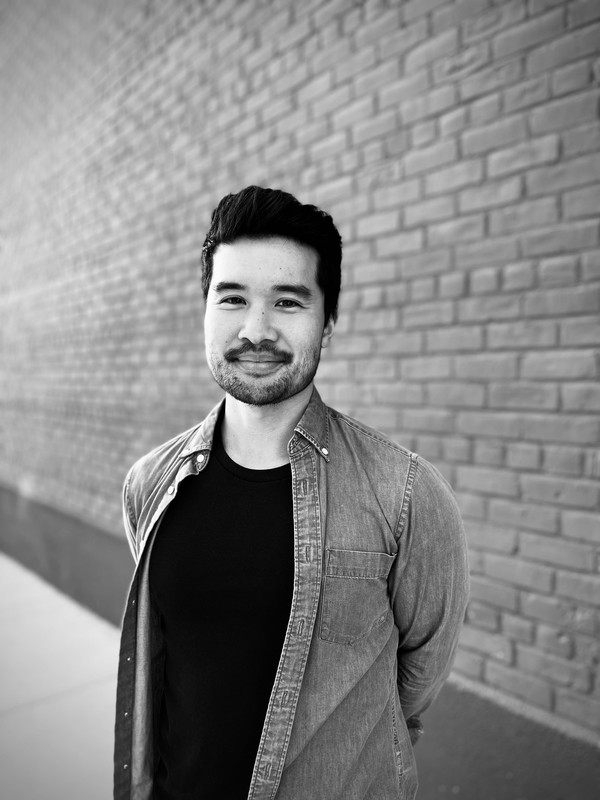
~
AMARELA
André Hayato Saito, Brazil
15′
On the day of the World Cup final between Brazil and France, Erika Oguihara, a Japanese-Brazilian teenager who rejects her family traditions, experiences a violence that seems invisible and plunges into a painful sea of emotions.
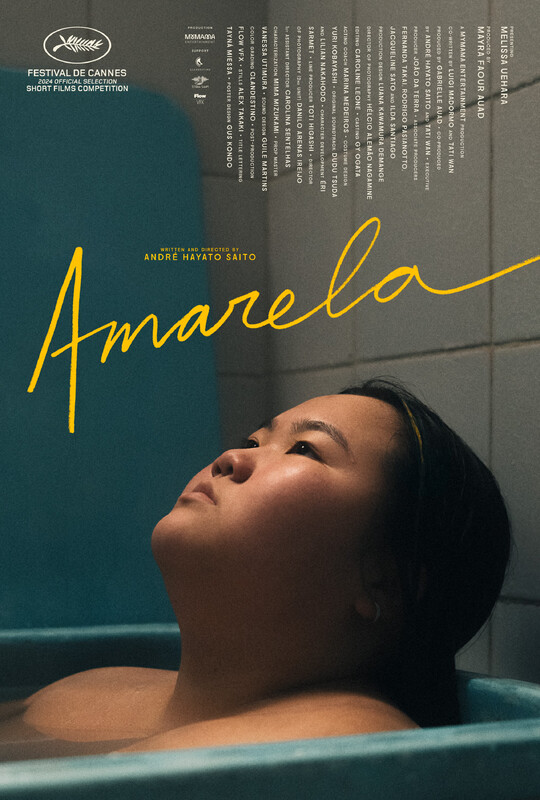

~
SAUNA DAY
Anna Hints, Tushar Prakash, Estonia
13′
SAUNA DAY invites you into the world of Southern Estonian men who go to the dark-intimate space of a smoke sauna after a hard day’s work. Beneath their tough exteriors lies a desire for connection, veiled in secrecy.
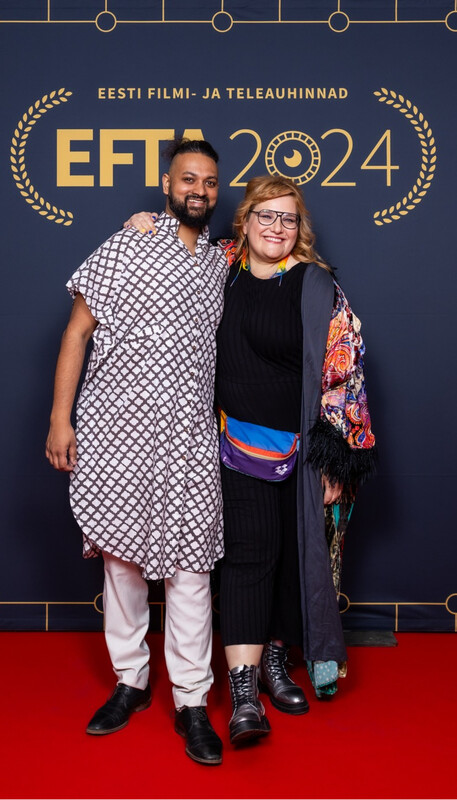
~
Pirouette
Ann Oren, Germany
12′ 30”
A dreamlike journey, a disintegration into a fluid Human-animal-plant-machine consciousness, Pirouette follows a sound artist who records horse sounds using her own body, while a cellist on the street invades her imaginary. It is the psychedelic conclusion of the horse-foley trilogy: Passage (2020) – Piaffe (2022) – Pirouette (2024).
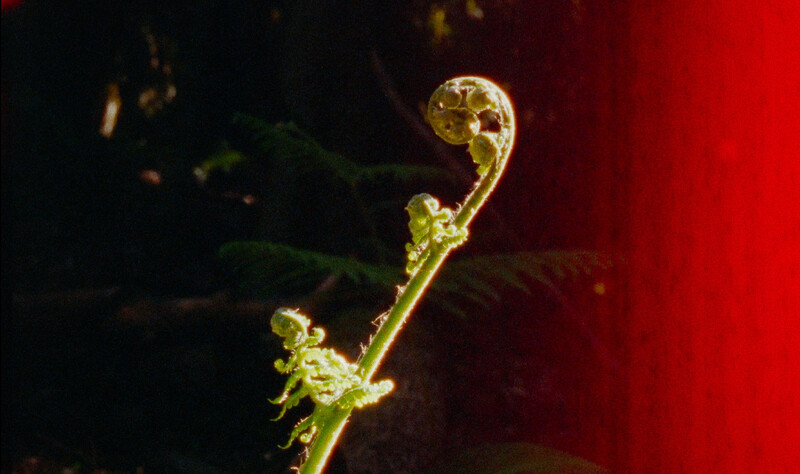

Director Biography – Ann Oren
Ann Oren is a Berlin based visual artist and filmmaker. By dissolving distinctions between plant, animal and human, she asks what it is to be human in an ecosystem immersed in digital culture. Questions about intimacy and identity keep emerging through various audio-visual approaches, while exploring gender, fictosexuality, animality, interspecies and other hybrid conditions. Employing a visceral language, she leads the spectator with their own body towards critical thinking. Her work’s institutional presentations include The Moscow Biennial for Young Art, The Hammer Museum, The Tel-Aviv Museum, Apexart, Lentos Kunstmuseum and Kindl – Zentrum für zeitgenössische Kunst. She directed PASSAGE in 2020, which premiered in Oberhausen Short Film Festival, and won many awards including Best Experimental Short at Slamdance. Her first narrative feature film PIAFFE premiered in the Locarno Film Festival’s International Competition and was presented in dozens of festivals including San Sebastián and BFI London. It won numerous awards including the Junior Jury Awards at the Locarno Film Festival, the Silver Hugo Award at the Chicago International Film Festival and Best Debut from The German Film Critics’ Association.
~
The distance between us
Léo Fontaine, France
18’24”
At 5 in the morning, Yalla is in a hurry. Without her boss’s permission, she leaves her night shift as a nursing assistant. She boards a bus, carrying only a heavy bag filled with clothes. The city is still asleep. Yalla sketches out on a piece of paper the various bus lines she needs to take. It’s her first time making this journey: her son is waiting for her.
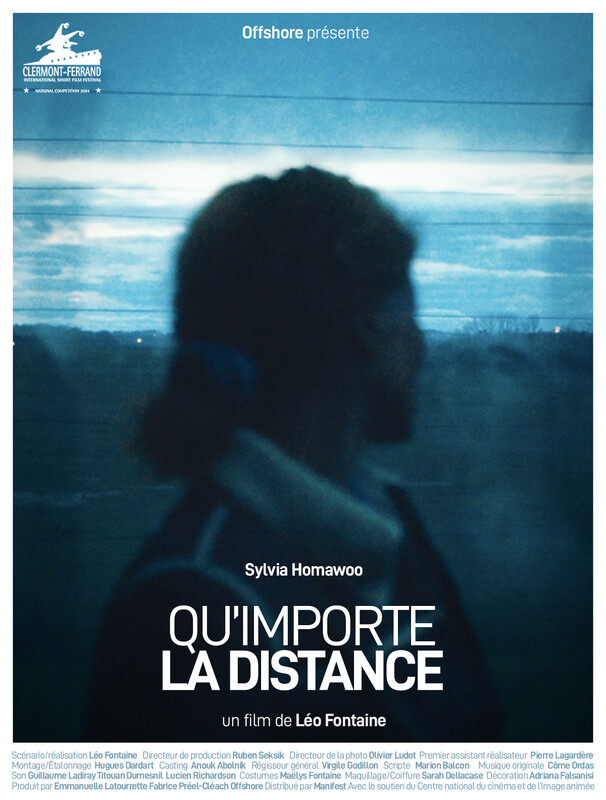
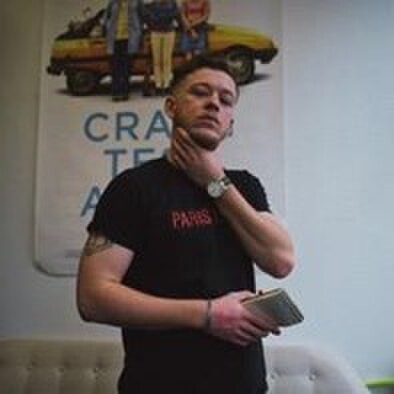
Director Biography – Léo Fontaine
Born in Chatenay-Malabry in 1994, Léo Fontaine studied cinema and directing at the 3IS school, from 2013 to 2016. In his final year, he directed his first short film, Fils De, co-written by Nolwenn Marty and Julia Zahar. The film tackles the daily life of a young teenager living in an oppressive neighborhood, starring Anthony Bajon, Jean-Michel Correia, Najaa Bensaid and Yves-Batek Mendy.
With the help of his brother Brice Fontaine, producer at One Out, Léo went on to direct and produce two short films about adolescence; L’un pour l’autre, a film about soccer, starring Yves-Batek Mendy. The film made some fifteen selections around the world, including several sports film festivals such as Barcelona. Then he directed Emma Forever, co-written with Julia Zahar, starring Victor Bonnel and Flavie Delangle. The film was selected for some twenty festivals and received a special mention at the Festival de musique et cinéma d’Aubagne. It has been purchased and broadcasted on OCS.
In 2021, he shot his third short film, Les cœurs en chien, produced by Améthyste Films and starring an attractive quartet of actors and actresses: Victor Bonnel, Manon Bresch, Héloïse Volle and Bilel Chegrani. Distributed by Manifest, the film was selected for the Jean Carmet Festival and the Brest Festival, then purchased and broadcasted on Arte.
His last short film, Qu’importe la distance was produced by Offshore and distributed by Manifest. The film follows the journey of a mother who visits her son in prison for the first time.
His first feature film, Jeunesse, mon amour, co-produced by Poly Films and Améthyste Films and distributed by Wayna Pitch, will be released in cinemas in April 2024. The film once again focuses on adolescence, friendship and the passage to adulthood.
~